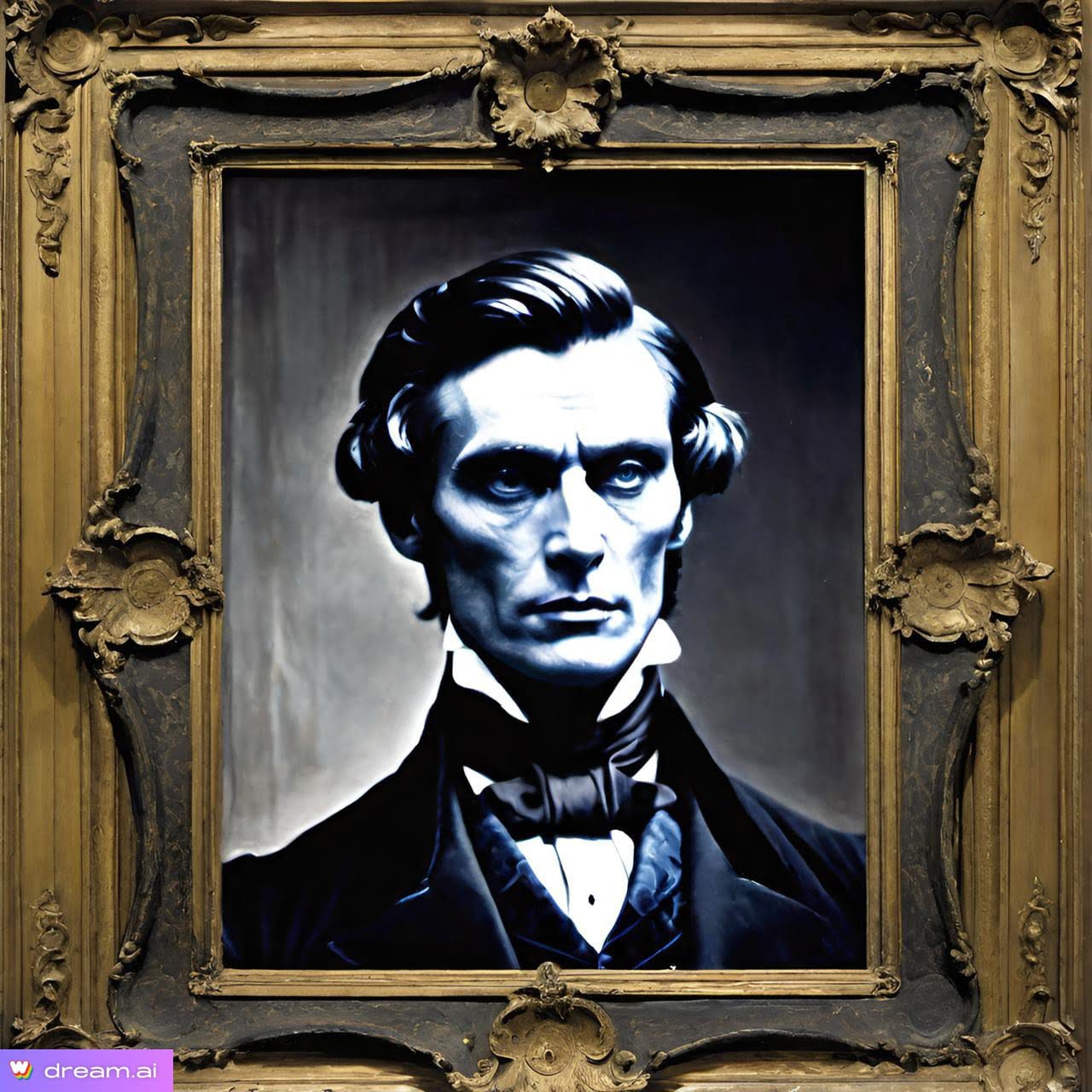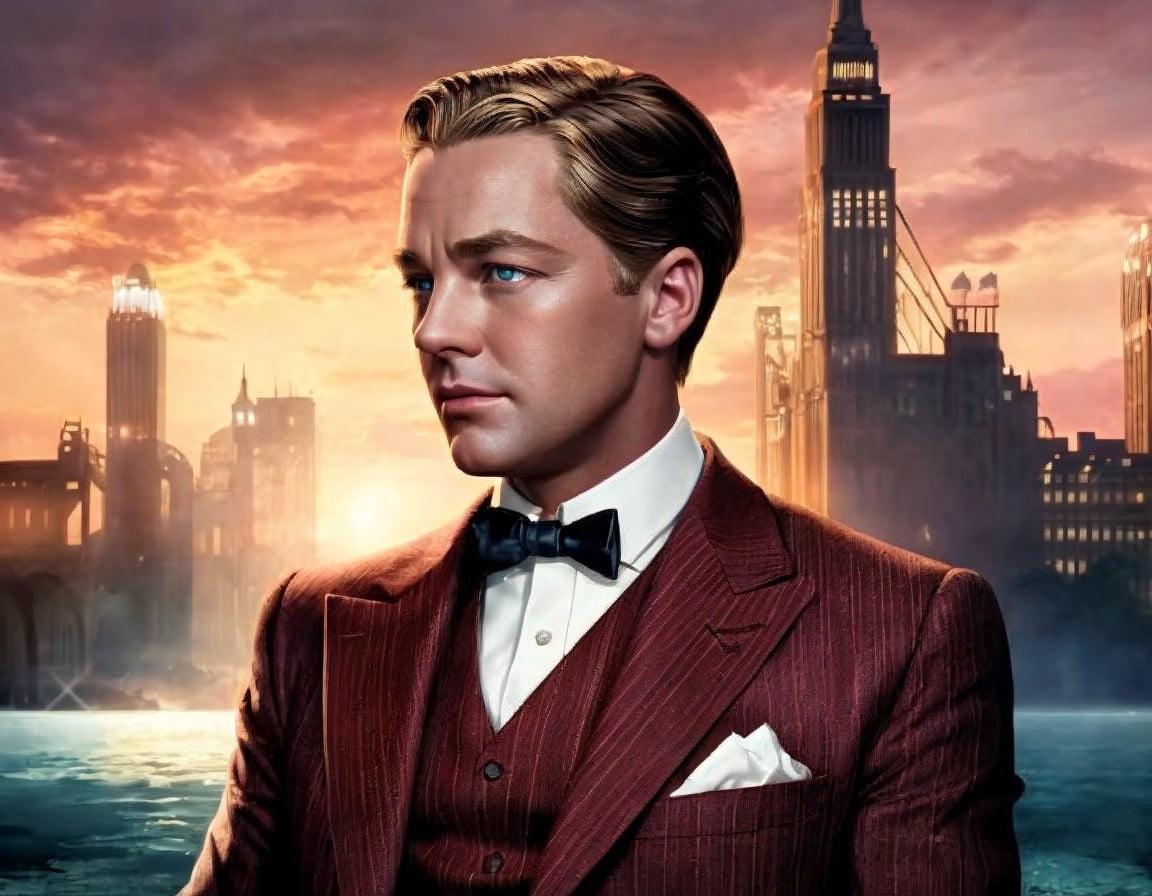Introduction to “Brave New World”
“Brave New World,” a seminal work by Aldous Huxley, was first published in 1932 and has since stood the test of time, remaining a cornerstone in discussions about dystopian futures. Set against the backdrop of rapid technological advances and the emergence of totalitarian regimes in the early 20th century, the novel anticipates a world where technological supremacy dictates human existence. This vision remains strikingly relevant as contemporary society grapples with issues surrounding digital privacy, bioethics, and the balance between state control and personal freedom.
The novel is set in the year 2540, in a world where natural reproduction has been replaced by a highly controlled system of genetic engineering. People are born from artificial wombs, conditioned from birth into predetermined castes that dictate their social roles and intellectual capacities. The overarching government, known as the World State, employs immense control through a combination of propaganda, conditioning, and the use of soma—a drug that ensures compliant happiness.
The plot follows Bernard Marx, an Alpha who begins to question the values of the World State, and his friend Helmholtz Watson, who feels confined by the state’s intellectual limits despite his privileged status. Their lives intersect with that of John the Savage, a person born naturally on a New Mexico Savage Reservation who embodies an alternate perspective on freedom and individuality. Through these characters, Huxley explores themes of conformity, human conditioning, and the loss of individuality in a technologically advanced society.
“Brave New World” not only critiques the potential dangers of unchecked scientific and technological progress but also acts as a mirror reflecting fears and hopes of its time—a world on the brink of drastic change. Its continued relevance in modern discourse underlines the enduring power of Huxley’s visionary imagination.
The World State: Governance and Control
In Aldous Huxley’s “Brave New World,” the World State represents a meticulously constructed totalitarian regime that exerts absolute control over its citizens. This futuristic society operates under the guise of a utopia, but it employs a variety of technological interventions, genetic engineering, and psychological conditioning to maintain an iron grip on its populace. From birth, individuals are subjected to hypnopaedic teachings, which function as a subtle yet potent form of indoctrination, embedding societal norms and expectations deep within their subconscious minds.
The World State’s governance is characterized by a rigid caste system, where citizens are genetically predestined and conditioned for their roles, ranging from the intellectually superior Alphas to the menial labor-performing Epsilons. Each caste is designed to be content with its societal function, thereby eliminating any desire for change or upward mobility. This stratification ensures that the structure of society remains intact, as each group’s needs and capacities are systematically regulated.
Advanced scientific techniques, particularly the Bokanovsky Process and Podsnap’s Technique, facilitate the mass production of humans, ensuring a steady supply of conditioned workers to perpetuate the state’s stability. This biotechnological manipulation extends beyond mere physical traits; it shapes personalities and behaviors to align with the World State’s overarching objectives. Soma, a ubiquitous drug within this society, further suppresses any residual emotional turbulence, effectively numbing the populace and curbing any potential dissent.
While the World State ostensibly champions principles such as community, identity, and stability, it does so at the expense of individual freedom and self-determination. The emphasis on perpetual happiness and consumption eradicates meaningful personal connections, intellectual curiosity, and authentic emotional experiences. In this environment, individuality is sacrificed for the seamless functioning of the collective, raising profound questions about the ethical implications of such a controlled and homogenized existence.
Technological and Genetic Engineering
Aldous Huxley’s “Brave New World” introduces a society deeply entrenched in technological advancements, particularly in genetic engineering and reproductive methods. At the heart of this futuristic world is the Bokanovsky Process, a fictional technique that enables the mass production of human embryos. This process is a cornerstone of the World State’s strategy for maintaining social stability by creating multiple, identical individuals from a single egg, effectively engineering human beings to fit predetermined roles within the societal hierarchy.
Alongside the Bokanovsky Process, the novel also explores methods of conditioning that begin from a very early age. From hypnopaedic teachings to the deliberate manipulation of desires and instincts, the state exerts a pervasive control over individual development. Unlike natural conception and upbringing, these engineered processes create citizens who are content with their preassigned statuses, stripping away free will and genuine human connection.
Huxley’s depiction of technology extends beyond mere functional innovation; it carries a heavy critique of the ethical ramifications that accompany such advancements. Through his detailed envisioning of a genetically engineered society, Huxley underscores the potential loss of individuality and autonomy. The novel raises thought-provoking questions about the sacrifice of human diversity and the suppression of personal freedom in exchange for societal harmony and efficiency.
The ethical concerns articulated in “Brave New World” resonate profoundly in today’s ongoing debates about genetic engineering and biotechnology. As we edge closer to realizing capabilities once confined to science fiction, Huxley’s narrative serves as a cautionary tale. It prompts a critical examination of our motivations and the possible consequences of unregulated technological progress, particularly in the realms of human reproduction and genetic manipulation.
Ultimately, Huxley’s portrayal of technological and genetic engineering urges us to consider the deeper implications of our pursuit of perfection. In our quest to enhance human capabilities and societal structures, we must vigilantly safeguard the essence of what it means to be human—our individuality, our freedom, and our capacity for genuine emotional experiences.
Characters and Their Roles
“Brave New World” features a host of intricately developed characters whose lives intertwine to portray the dystopian society of the World State. Among the primary figures is Bernard Marx, an Alpha-plus psychologist, who feels isolated due to his physical and intellectual differences. His internal conflicts and rebellion against societal norms highlight the individual’s struggle against collective conformity. Conversely, Lenina Crowne, a Beta, represents the quintessential citizen of the World State; her conditioning has crafted a life of superficial pleasure and unquestioned adherence to social norms. Lenina’s character serves as a foil to Bernard, emphasizing the stark contrast between rebellion and conformity.
Helmholtz Watson, a gifted Alpha-plus lecturer and emotional engineer, finds his brilliance stifling within the constraints of the World State. His friendship with Bernard underscores their shared sense of alienation, yet Helmholtz’s dissatisfaction is driven by a quest for genuine self-expression rather than mere resentment. His character embodies the intellectual’s plight in a controlled society, where creativity and independent thought are viewed with suspicion.
John ‘the Savage’ emerges as a critical figure upon his introduction from the Savage Reservation. Born to a World State citizen, Linda, but raised in a contrasting environment, John is a living juxtaposition between two worlds. His profound grasp of Shakespearean literature and natural human emotions starkly contrasts with the conditioned, emotionless lives of the World State populace. His interactions with Bernard, Lenina, and others serve as a catalyst for crises, revealing the fragile fabric of the seemingly perfect society.
The interactions among these characters are pivotal in advancing the narrative of “Brave New World.” Their distinct perspectives and motives underscore the novel’s exploration of themes such as individuality versus conformity, the cost of technological advancement, and the quest for true happiness. Through their experiences and conflicts, Huxley offers a profound critique of the potential dehumanization in a hyper-controlled world.
Themes of Comfort vs. Freedom
In Aldous Huxley’s “Brave New World,” the central conflict revolves around the tension between comfort and freedom. This theme is pivotal in understanding the dynamics of the World State, a society engineered to prioritize stability, superficial happiness, and the suppression of individuality. Huxley provides a vivid portrayal of a world where technological advancements and social conditioning usurp genuine human experiences, ensuring that the citizens of the World State remain placid and docile.
The World State achieves its seemingly idyllic existence through rigorous control mechanisms designed to maintain societal equilibrium. From the artificial propagation of happiness via soma, a wonder drug, to the use of hypnopaedic conditioning that instills obedience from a young age, the state leaves no room for personal autonomy or dissent. This strict regimen ensures that citizens are shielded from discomfort, thereby sacrificing the essence of human freedom and individuality.
The dichotomy of comfort versus freedom is embodied in the characters Bernard Marx and John the Savage. Bernard, who feels inadequately short and thus socially ostracized, begins to question the oppressive conformity of the World State. His internal struggle represents the human desire for independence and authenticity. Conversely, John, born in the chaotic and unstructured environment of the Savage Reservation, yearns for meaningful human experiences and connections. His eventual rejection of the World State’s superficial comfort underscores the intrinsic human craving for freedom, despite its inherent challenges.
Huxley profoundly critiques a society willing to forgo freedom for the sake of comfort. The novel thus serves as a cautionary tale, emphasizing that true fulfillment arises not from engineered contentment but from experiencing the full spectrum of human emotions and autonomously navigating life’s complexities. This tension between comfort and freedom, artfully explored through the characters’ journeys, forms the crux of “Brave New World,” urging readers to reflect on the value of individual freedom in the face of societal pressure.
The Role of Soma and Escapism
The novel “Brave New World” by Aldous Huxley presents a dystopian society where the inhabitants are kept in a state of passive contentment through the use of ‘soma,’ a government-provided drug. The substance acts as an instrument of control, ensuring that citizens remain docile and uncritical of the regime’s policies. Soma exemplifies the theme of escapism in the novel, serving as an avenue for individuals to evade the discomforts of reality and seek refuge in a state of artificial happiness.
Within the context of “Brave New World,” soma’s significance cannot be overstated. It symbolizes not only the populace’s reliance on external substances to cope with their existence but also the broader societal inclination towards distraction and avoidance of genuine experiences. The government employs soma to suppress dissent and maintain social order, illustrating how escapism can be manipulated to serve authoritarian ends. The citizens’ dependence on soma reflects a broader cultural endorsement of superficial satisfaction over meaningful engagement with life’s challenges.
The concept of escapism in Huxley’s work extends beyond the use of soma to encompass other distractions endorsed by the state. Recreational activities, sensory pleasures, and constant entertainment are part of the social fabric, designed to keep individuals detached from critical thinking and self-awareness. This pervasive culture of escapism underscores a dark facet of human nature – the tendency to prefer comforting illusions over confronting uncomfortable truths.
Huxley’s portrayal of a society engrossed in escapism offers a cautionary tale for contemporary readers. It prompts reflection on modern-day dependencies, whether on pharmacological aids, digital distractions, or other forms of escapism, highlighting the risks of succumbing to temporary pleasures at the expense of personal growth and societal progress. The novel serves as a potent reminder of the importance of facing reality head-on, rather than retreating into the safe confines of illusion.
Comparison with Present-Day Society
Aldous Huxley’s “Brave New World,” published in 1932, presents a dystopian vision of a future dominated by technology, state control, and the suppression of individuality. As we examine contemporary society, it becomes evident that several themes from Huxley’s narrative resonate strongly with modern-day trends. The increasing role of technology in daily life, the advent of genetic modification, and the ever-pertinent debate over balancing security and personal freedom highlight the prescient nature of Huxley’s work.
In “Brave New World,” technology’s omnipresence is a double-edged sword, promoting convenience while simultaneously exerting control over the populace. Today, our reliance on technology has grown exponentially. Smart devices, social media, and artificial intelligence shape our daily experiences, echoing Huxley’s depiction of a society where technology dictates human behavior and social interactions. The saturation of digital interfaces and the proliferation of surveillance technologies raise questions about privacy and autonomy, mirroring Huxley’s concerns.
Another striking parallel is the concept of genetic modification. In Huxley’s world, genetic engineering is used to predetermine individuals’ roles and station in life, ensuring a controlled and stable society. Presently, advancements in genetic research, including CRISPR and other gene-editing technologies, prompt ethical debates reminiscent of Huxley’s themes. While the potential benefits for disease eradication and improved quality of life are undeniable, the implications for eugenics and genetic inequality remain contentious issues.
The balance between security and personal freedom is a crucial aspect of both Huxley’s dystopia and contemporary global discourse. In “Brave New World,” the citizens are conditioned to prioritize collective stability over individual rights, fostering a conformist and complacent populace. Today, the tension between national security measures and personal freedoms is a recurring theme, particularly in the context of counter-terrorism efforts and public health crises. Surveillance programs and emergency powers often prompt discussions about the erosion of civil liberties, vividly reflecting Huxley’s forewarnings.
In essence, “Brave New World” serves as a cautionary tale, urging us to scrutinize the trajectory of our technological, genetic, and sociopolitical advancements. While Huxley’s dystopian future may seem extreme, the echoes of his vision in today’s society underscore the importance of vigilance in preserving human agency and freedom amidst rapid progress.
Conclusion: The Legacy of “Brave New World”
Aldous Huxley’s “Brave New World” remains an influential piece of literature, demonstrating foresight in addressing themes of technology, control, and the future of society. Throughout this blog post, we have explored various elements of Huxley’s novel, from its intricate world-building and character development to its critical commentary on societal norms and the use of technology.
Huxley’s dystopian vision portrays a world where technological advancements are exploited to maintain control over the populace, stifling individuality and critical thought. This portrayal serves as a cautionary tale, illustrating the potential perils of a society overly reliant on technology to solve its problems. By examining the relationships among characters, the novel allows readers to reflect on the intrinsic value of human emotion and freedom, which risk being undermined by technological overreach and authoritarian governance.
In the current age, with rapid technological advancements and increasing governmental oversight, “Brave New World” resonates more than ever. Readers are encouraged to consider how contemporary societal values align with those depicted in Huxley’s dystopia. Issues such as privacy erosion, mass surveillance, and the commodification of human experience echo the novel’s themes, prompting important reflections on the trajectory of modern society.
The enduring relevance of “Brave New World” lies in its ability to provoke critical thought and discussion about the direction humanity is heading. Huxley’s warnings remind us of the importance of safeguarding individuality, personal freedoms, and ethical considerations in the face of technological progress. By revisiting this seminal work, we gain valuable insights into the potential consequences of our actions and the societal choices we make today.
Ultimately, “Brave New World” continues to serve as both a mirror and a beacon, reflecting the challenges we face and guiding our understanding of the complex interplay between technology, control, and human values. Huxley’s vision remains a pivotal touchstone for those seeking to navigate the labyrinth of our evolving world.



